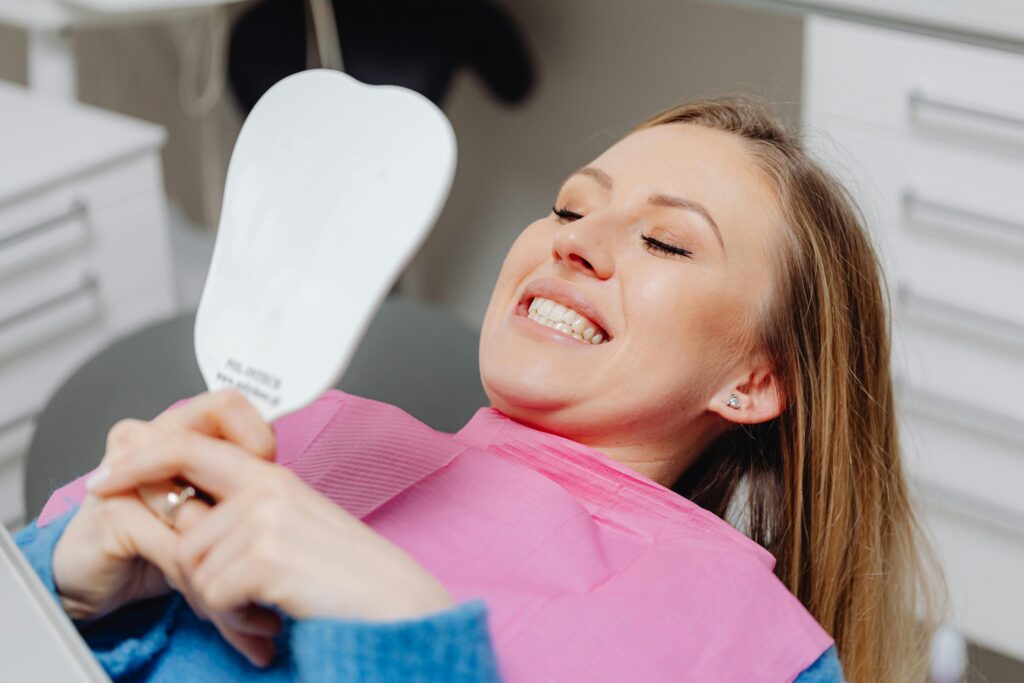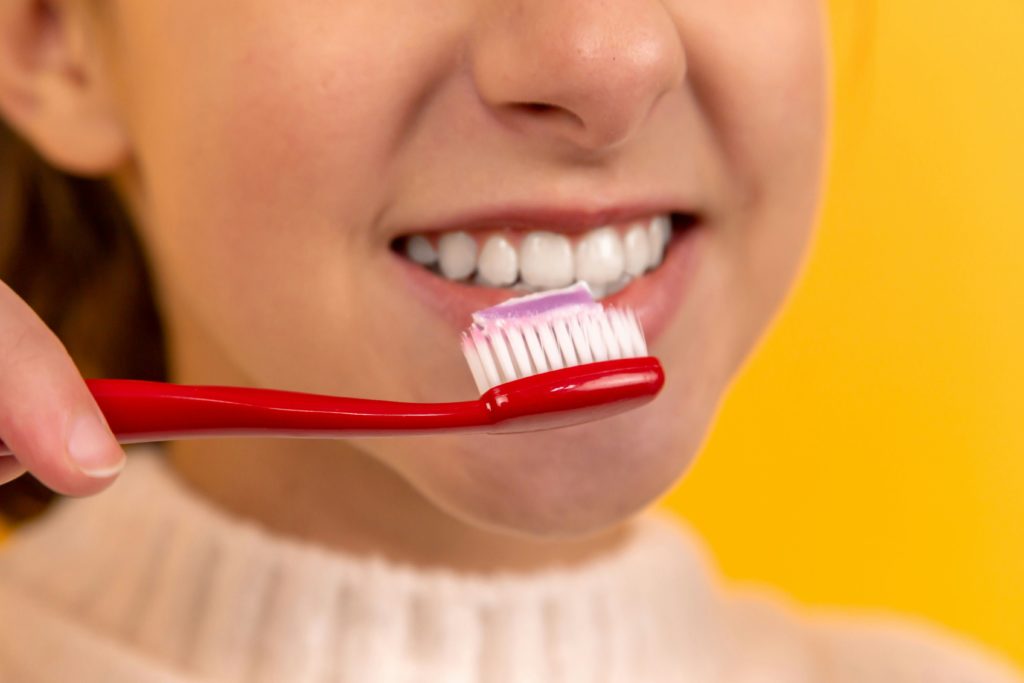A bright, white smile is something many people desire. But professional whitening treatments can be expensive, and over-the-counter products often contain harsh chemicals. Fortunately, there are natural, DIY remedies that can help you whiten your teeth at home. These solutions use ingredients you probably already have in your kitchen and can be a safer, gentler way to achieve a whiter smile. In this article, we’ll explore some of the most effective and simple natural remedies for teeth whitening.
Baking Soda and Hydrogen Peroxide
One of the most popular DIY teeth whitening remedies is a mixture of baking soda and hydrogen peroxide. Baking soda is mildly abrasive, which helps remove surface stains, while hydrogen peroxide acts as a natural bleaching agent.
To use this remedy, mix a small amount of hydrogen peroxide with a teaspoon of baking soda to form a paste. Brush your teeth with the mixture for about two minutes, then rinse thoroughly. This method can be used a few times a week, but avoid overuse, as it can be abrasive if applied too often.
Coconut Oil Pulling
Coconut oil pulling is a traditional remedy that has gained popularity for its ability to promote oral health and whiten teeth naturally. The lauric acid in coconut oil helps reduce bacteria in the mouth, which can lead to brighter teeth.
To try this method, take a tablespoon of coconut oil and swish it around your mouth for 15-20 minutes. Make sure to push and pull the oil between your teeth. Afterward, spit the oil out into a trash can (to avoid clogging your drains) and rinse your mouth with water. You can follow this up by brushing your teeth. Oil pulling is gentle and can be done daily.
Apple Cider Vinegar
Apple cider vinegar (ACV) is another natural option for whitening teeth, thanks to its mild acidic properties. It can help remove stains caused by coffee, tea, and other food and drink that may discolor teeth over time.
To use ACV as a whitening agent, dilute it with water (1 part ACV to 2 parts water) and use the mixture as a mouthwash. Swish for about 30 seconds, then rinse your mouth with plain water. Be cautious with this method, as the acid in apple cider vinegar can erode enamel if used too frequently. Limit this treatment to once or twice a week.
Activated Charcoal
Activated charcoal is a popular natural remedy for teeth whitening because it binds to stains on the teeth, helping to remove them. Though it may look odd to brush your teeth with black powder, many people have found success with this method.
To use activated charcoal, wet your toothbrush and dip it into the charcoal powder. Brush your teeth gently for 2-3 minutes, then rinse thoroughly. Use this method a couple of times a week, but be cautious if you have sensitive teeth or gums, as it can be abrasive.
Strawberries and Baking Soda
This teeth whitening remedy may surprise you, but strawberries contain malic acid, which can help break down surface stains on teeth. Combined with baking soda, this can be an effective natural solution.
To try this method, mash one or two strawberries and mix them with half a teaspoon of baking soda. Apply the mixture to your teeth with a toothbrush and let it sit for 5-10 minutes. Afterward, rinse your mouth and brush your teeth with regular toothpaste. This method can be used once or twice a week for the best results.
Lemon and Baking Soda
Lemon juice is another natural bleaching agent that can help remove teeth stains, thanks to its acidity. When combined with baking soda, it creates an effective DIY whitening paste.
To make the mixture, combine a few drops of lemon juice with half a teaspoon of baking soda. Apply the paste to your teeth and leave it on for 1-2 minutes before rinsing thoroughly. Because lemon juice is highly acidic, it’s important not to use this method too often—once a week is enough to avoid damaging your enamel.
Banana Peel
Another lesser-known but natural teeth whitening method involves using a banana peel. The inside of the peel contains potassium, magnesium, and manganese, which may help remove stains and whiten teeth.
To try this, rub the inside of a banana peel on your teeth for about two minutes, then brush your teeth as usual. This is a gentle method that can be done daily.
Orange Peel or Lemon Peel
Citrus peels, like those from oranges or lemons, can also be used to whiten teeth naturally. The d-limonene compound in citrus peels helps remove surface stains without being too abrasive.
Rub the inside of the peel on your teeth for a few minutes, then rinse and brush your teeth as normal. Be cautious, though, as the acidity in citrus peels can weaken enamel over time. Use this method sparingly—once or twice a week.
Precautions When Using Natural Remedies
While these natural remedies can help brighten your smile, it’s important to remember that they are not without risk. Overuse of acidic or abrasive ingredients can lead to enamel erosion, sensitivity, and other dental problems. Here are a few precautions to keep in mind:
- Limit usage: Don’t overuse any remedy, especially those that involve acidic ingredients like lemon or apple cider vinegar.
- Consult a dentist: Before trying any new whitening method, it’s a good idea to consult with your dentist, especially if you have sensitive teeth or existing dental issues.
- Maintain good oral hygiene: Natural remedies are not a substitute for regular brushing, flossing, and professional dental care.
Conclusion
Achieving a brighter smile doesn’t have to involve expensive treatments or harsh chemicals. With a few natural ingredients, you can safely whiten your teeth at home. Baking soda, hydrogen peroxide, coconut oil, and other simple remedies can help remove stains and brighten your teeth with regular use. Just be sure to use these methods in moderation to avoid damaging your enamel. A little extra care and a consistent routine can give you the white smile you’ve always wanted.
FAQs
1. How often can I use baking soda to whiten my teeth?
Baking soda can be used a few times a week. However, overuse can wear down your enamel, so it’s best to limit its use to 2-3 times per week.
2. Is it safe to use hydrogen peroxide on teeth?
Hydrogen peroxide is generally safe in low concentrations. Be sure to use a diluted form and avoid using it too frequently, as it can cause sensitivity.
3. Can I whiten my teeth with lemon juice every day?
No, lemon juice is highly acidic and can erode enamel if used too often. Limit lemon-based whitening treatments to once a week at most.
4. Does coconut oil pulling really whiten teeth?
Yes, coconut oil pulling can help whiten teeth over time by reducing bacteria and plaque buildup. However, the results are gradual and not as immediate as other methods.
5. Is activated charcoal safe for teeth whitening?
Activated charcoal can be effective but should be used sparingly, as it can be abrasive. It’s best to use it no more than once or twice a week to avoid damaging enamel.
6. Are natural teeth whitening remedies as effective as professional treatments?
Natural remedies can help remove surface stains and brighten your smile, but they may not be as effective as professional treatments for deep stains or long-term results.



